"Twenty-six years of intimate companionship"
George Marshall didn’t have a serious girlfriend before he entered the Virginia Military Institute when he was 16. That changed when he met Elizabeth “Lily” Coles his senior year.
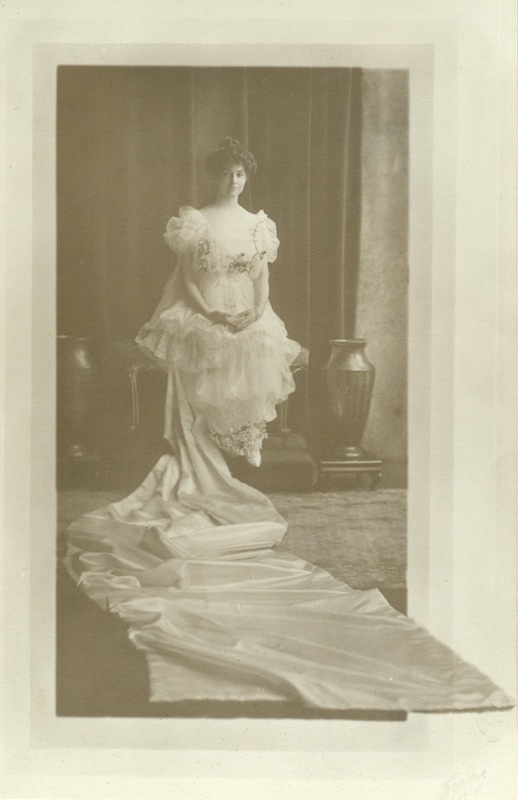
Lily Coles as a young woman in Lexington, Virginia
Lily lived with her mother just outside the gates of VMI. Marshall first became aware of Lily as he was walking past and heard her play the piano. At first, Marshall and his roommate Erskine Miller visited Lily to listen to her play. When Miller realized Marshall was serious about Lily, he stopped joining in on visits.
Marshall’s courtship of Lily was widely discussed on campus as Lily was a few years older than Marshall and dated Marshall’s brother Stuart when he was at VMI. To see her, Marshall would leave campus without permission, called “running the block.” Some of Marshall’s classmates reminded him that he risked getting expelled from VMI by visiting Lily. Sometimes Marshall would set up a dummy in his bed so that he wouldn’t get caught.
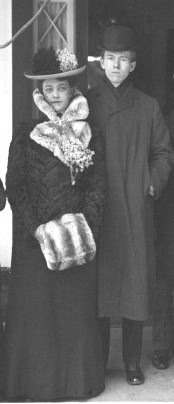
George and Lily Marshall on their wedding day.
On Tuesday, February 11, 1902, George and Lily were married in her home on Letcher Avenue. His sister Marie recalled that their “Mother was upset about it. Lily had gone with Stuart.” After the wedding, Stuart made a remark about Lily, which caused a break between the brothers.
Marshall’s Army career meant that George and Lily were separated by military orders during much of their early marriage. Within two weeks of their wedding, Marshall was sent to the Philippines for two years. Marshall spent many summers away from home during National Guard training exercises. One summer Lily wrote, “Mud [Mother] & I have been having a very quiet, happy summer together — You know George had started for a 5 weeks Inspection trip.”
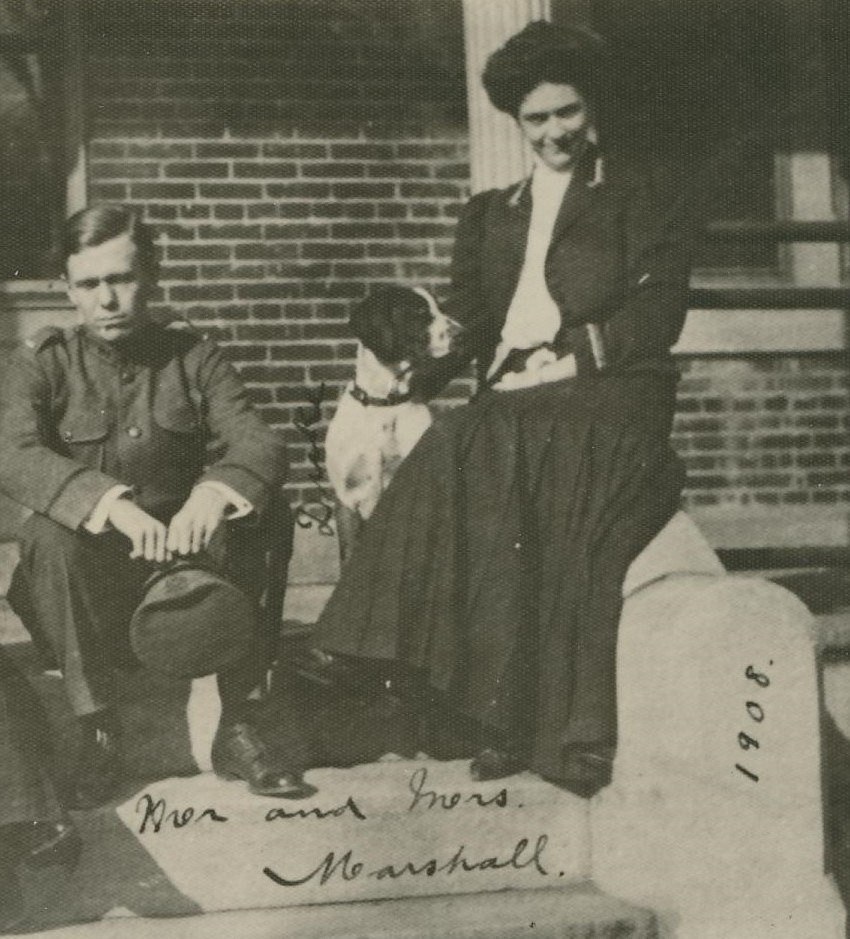
Lt. George and Lily Marshall with their dog, Drake, at Fort Leavenworth, Kansas
The three years that Marshall was stationed at Fort Leavenworth, KS, he and Lily spent most evenings at home. Marshall was rather an introvert, and preferred to study at home and spend time with Lily, who had a heart ailment and tired easily.
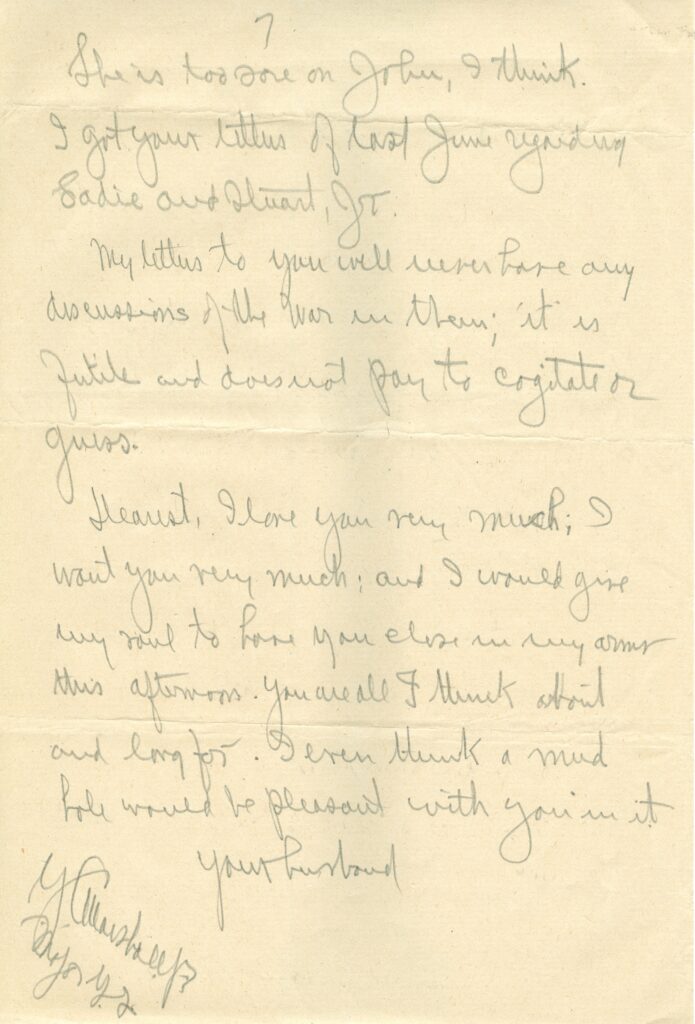
Letter from George to Lily during World War I
During World War I, Marshall was in France for two years, and he and Lily wrote each other regularly but war zone mail delivery was irregular. In one letter he asks Lily to “send me some kodaks (pictures) of yourself. Not posed ones, but just chance shots – good, bad and indifferent.” Marshall is very much a man in love as he writes, “Dearest, I love you very much. I want you very much; and I would give my very soul to have you close to me this afternoon. You are all I think about and long for. I even think a mud hole would be pleasant with you in it.” She replies, “It seems about a thousand years since you and I have exchanged letters and yet I can truthfully say there is not a single day where I do not think of you.”
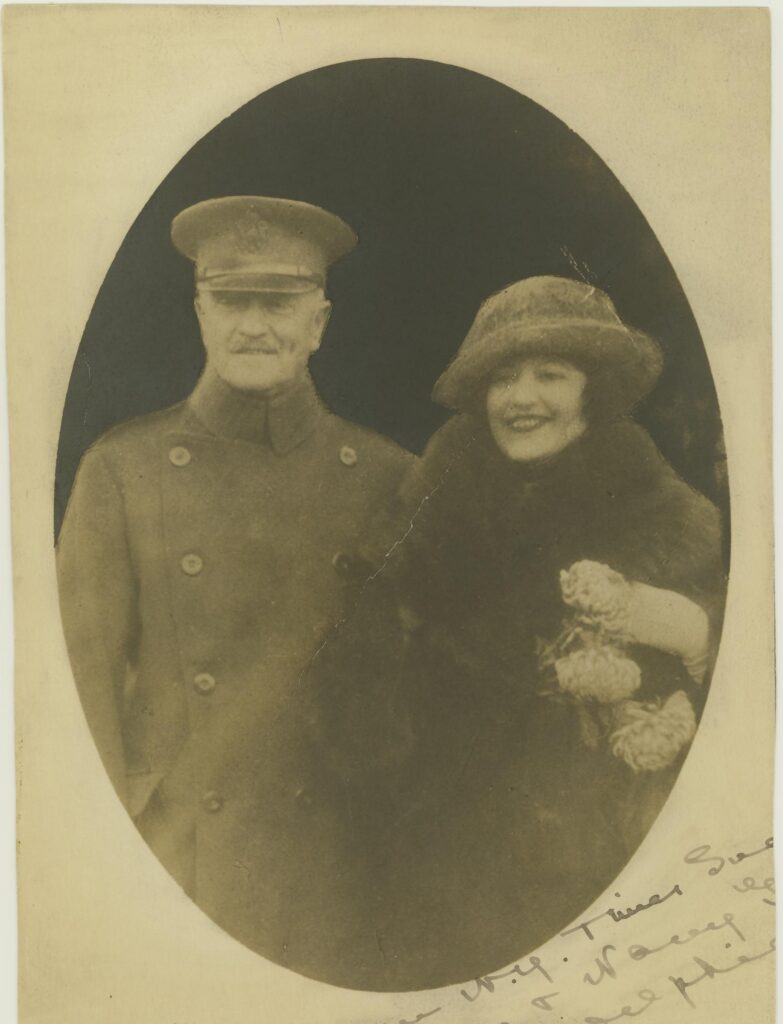
Lily Marshall with Gen. John J. Pershing
After the war, Marshall served as Gen. John Pershing’s aide-de-camp. Lily preferred to skip some of the traveling Marshall did with Pershing although she was invited, “they both want me to go on the trip too – but I believe it will be a very trying & tiring one from the hectic programme [sic] mapped out (all sorts of hot old receptions etc.) & frankly, I can’t see much fun in it so I’ve declined– It’s not my idea of a good time.”
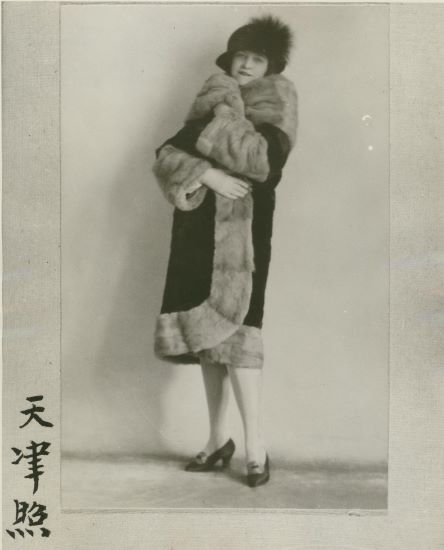
Lily in China
In 1924, Lily was excited to tell her Aunt that Marshall would soon be stationed in China and that she would be going along. “We expect to go to China! for 3 years. I want to take Mud with me, for I’d be wretched if I left her behind. A lot of our friends are over there — & all are wild about it – beautiful houses – wonderful food – Mud feels a little skeptical but I tell her she has got to be a sport & come along!”
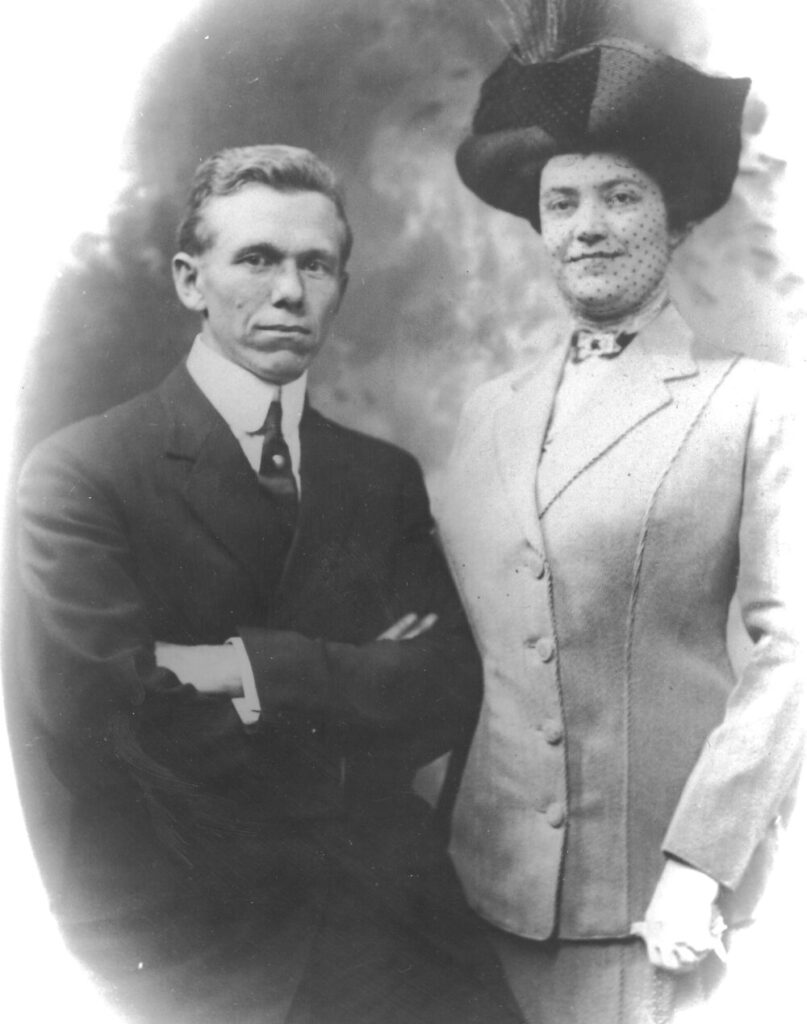
George and Lily
Marshall returned to Washington, D.C. in 1927 to take a post as a War College instructor. He was worried about Lily as her health wasn’t good. A friend lent the Marshalls his apartment while they found a place to live, but Lily wasn’t strong enough to get settled; instead entering Walter Reed for tests, with alarming results that indicated a need for surgery on her thyroid.
In August, Marshall wrote,
“She stayed in the hospital five days and had all the necessary tests. She did not rest at all well in the hospital and ate very little, growing extremely weak. I brought her home in an endeavour to build her up to a point where they would dare operate, and the joy of her new house, the peace and quiet did a great deal for her. She gained nine pounds. Consequently, they feel that she is in as good a condition for an operation as she probably will be.” Marshall pointed out that she was still “so weak that she is unable to sit up by her own effort, and she suffers from an increasing suffocation due to the pressure of the swollen thyroid gland on her wind pipe. She also suffers from paroxisms [sic] of coughing for the same reason. All this, we hope will be eliminated by the operation. Tomorrow, Sunday, I take her back again and they plan to operate Monday or Tuesday. Of course, it will be three or four weeks before she can be expected to show any material improvement, but after that she should be much better. Lily has a great deal of courage about the matter, weak as she is. Of course she realizes that without the operation she would never improve and would probably grow steadily worse.”
After Lily’s surgery at the end of August, Marshall wrote, “I hope that by tomorrow she will really start to show signs of making a real recovery. While this operation was a hard ordeal for her in her weakened condition and with her heart in very bad shape, yet it was the only means of helping her.”
Lily wrote to her aunt,
“I have needed all the help & support possible to carry me through the most horrible experience of my entire life– I believe if I had had any notion before hand what it would be like I might not have had the courage to face it—tho’ the doctor says I could only have lived a few months if I had not had the operation. I hope in a few more weeks to be able to go home– That is my one thought—to get home– Of course I was never able to do one thing towards settling or arranging my house—& Geo. has not tried to do much. He has not unpacked any of the silver & is just sort of picnicing [sic]– I imagine it will be at least Xmas before I will be able to go downstairs but I will be so happy to be alive– I will not be impatient.”
On Sept. 15, 1927, Lily died suddenly while writing a letter to her mother, excited about soon being released from the hospital.. Absolutely bereft, Marshall wrote to Pershing about his loss: “twenty-six-years of most intimate companionship, something I have known since I was a mere boy, leaves me lost in my best effort to adjust myself to future prospects in life.”
Suffering greatly, Marshall asked to be transferred to a post where he and Lily had never lived, as the memories were just too difficult. He was soon on his way to Fort Benning (now Fort Moore) to take charge of academics at the Infantry School there.
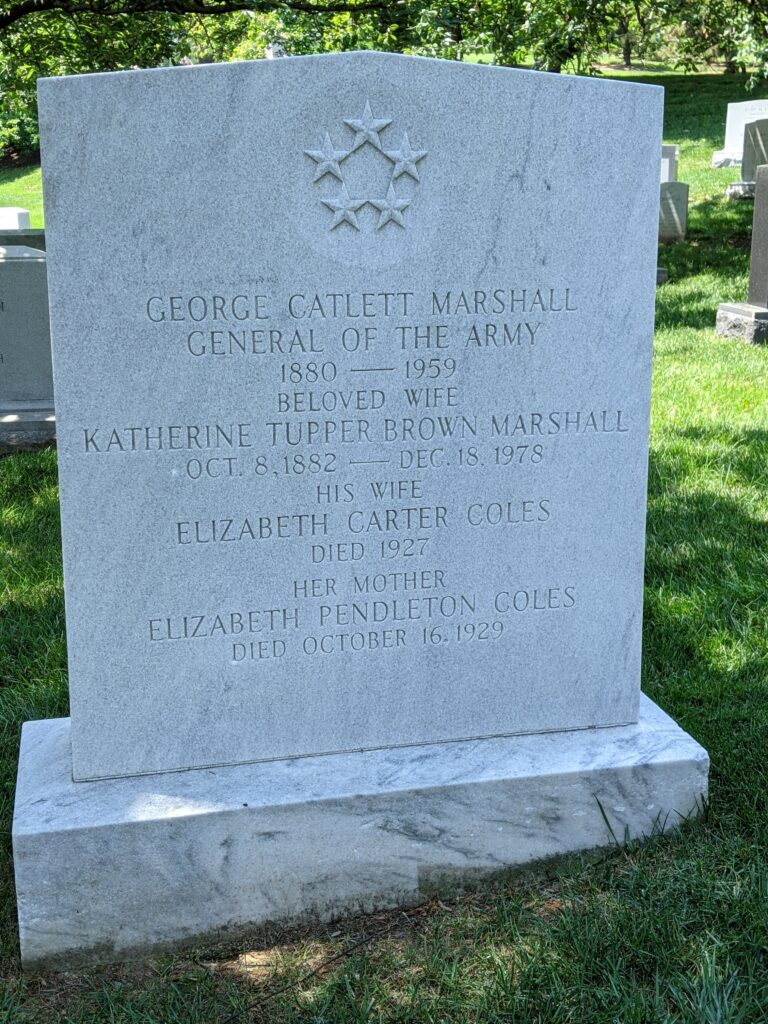
The Marshall headstone at Arlington National Cemetery
Lily was buried in Arlington National Cemetery. Two years later, her mother was also buried in the plot, followed by Marshall in 1959 and his second wife, Katherine, in 1978.
Melissa has been at GCMF since Fall 2019, and previously was an academic librarian specializing in history. She and her husband, John, have three grown children, and live in Rockbridge County with their large rescue dogs. Keep up with her @MelissasLibrary
